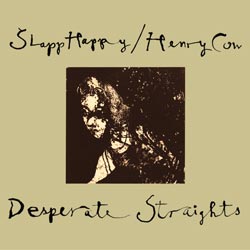
In Stock
Quantity in Basket: None
Log In to use our Wish List
Shipping Weight: 5.00 units
EU & UK Customers:
Discogs.com can handle your VAT payments
So please order through Discogs
Sample The Album:
Peter Blegvad-clarinet, guitar, vocals, voices, artwork, lithography
Muchsin Campbell-horn, French horn
Lindsay Cooper-bassoon, oboe, wind
Chris Cutler-drums
Nick Evans-trombone
Mongezi Feza-trumpet
Fred Frith-guitar, violin
John Greaves-bass, piano, bass guitar
Tim Hodgkinson-clarinet, piano
Dagmar Krause-piano, vocals, voices, Wurlitzer
Geoff Leigh-flute, wind
Pierre Moerlen-percussion
Anthony Moore-piano, keyboards, vocals
Click an artist name above to see in-stock items for that artist.
UPC: 752725019026
Label: Recommended Records
Catalog ID: RERHCSH1
Squidco Product Code: 2911
Format: CD
Condition: New
Released: 1975
Country: Great Britain
Packaging: Jewel Tray
Recorded at The Manor & Nova Sound Studios.
Artist Biographies
• Show Bio for Peter Blegvad "Peter Blegvad (born August 14, 1951) is an American musician, singer-songwriter, writer, and cartoonist. He was a founding member of German/English avant-pop band Slapp Happy, which later merged briefly with Henry Cow, and has released many solo and collaborative albums. He is the son of Lenore and Erik Blegvad, who were respectively, a children's book author and illustrator. Peter Blegvad's life began in America – he was born in New York City and originally raised in Connecticut. When he was 14, the Blegvad family moved to England in 1965, unhappy with the social climate of America following the assassination of John F. Kennedy and the threat posed by the Vietnam draft to Peter and his younger brother Kristoffer. Blegvad was educated at St Christopher School, Letchworth, a boarding school where he met his musical collaborator Anthony Moore. Moore and Blegvad played in various bands during their schooldays, alongside fellow musicians such as Neil Murray (then a drummer, later a well-known hard rock bass guitarist). In 1972, Blegvad followed the itinerant Moore to Hamburg, Germany, where the two formed the avant-pop trio Slapp Happy with Dagmar Krause, Slapp Happy recorded two albums for Polydor Germany with krautrock group Faust as their backing band. Polydor released the first, Sort Of in 1972, but rejected the second, Casablanca Moon. This rejection prompted Slapp Happy to relocate to London where they signed up with Virgin Records and re-recorded Casablanca Moon, released in 1974 by Virgin as Slapp Happy. (The original Casablanca Moon was later released by Recommended Records as Acnalbasac Noom in 1980.) In 1974 Slapp Happy merged briefly with avant-rock group Henry Cow, recording two albums in 1975, Desperate Straights and In Praise of Learning. Shortly after recording In Praise of Learning, first Moore and then Blegvad left Henry Cow due of incompatibilities with the other musicians in the group. Blegvad has confessed that the technical demands of Henry Cow's music were beyond him ("It was discovered – not to my surprise – that I actually couldn't play Henry Cow music. The chords and the time signatures were too complicated. And... just generally, Anthony and I felt kinda lost...") but it was also clear that there were crucial differences in artistic approach. Blegvad would later reveal (in an interview for the Hearsay fanzine) that "the piece that got me kicked out was "Living in the Heart of the Beast". I was assigned the task for the collective to come up with suitable verbals, and I wrote two verses about a woman throwing raisins at a pile of bones. Tim Hodgkinson just said, I'm sorry, this is not at all what we want. And he wrote reams of this political tirade. I admired his passion and application but it left me cold. I am to my bones a flippant individual, I don't know why I was created thus or what I'm trying to deny, but it clashed with the extreme seriousness. People who take themselves very seriously make me giggle, unless they're pointing a weapon at me or my loved ones". Due to Krause's decision to remain with Henry Cow, Slapp Happy dissolved and the three members went their separate ways (although the group would periodically reunite in 1982, 1991, 1997, 2000 and 2016–17). Blegvad returned to New York to work as a cartoonist, but maintained his interest in music. In 1977 he reunited with Henry Cow bass player John Greaves to collaborate on the album Kew. Rhone. – an unusual cross-genre release combining elements of minimalism, avant-garde jazz and progressive rock. The album was also notable for its personnel, which included celebrated New York jazz musicians Carla Bley, Michael Mantler, and Andrew Cyrille among the performers. As a musical document Kew. Rhone. remains both ambitious and unclassifiable; Blegvad's literate and playful lyrics are well-matched by Greaves' complex song structures. Blegvad would later continue his collaboration with Greaves in 1995 on Unearthed, a collection of spoken word pieces set to Greaves' music. In the 1980s, Blegvad released a number of commercially unsuccessful albums on the Virgin Records label, including The Naked Shakespeare and Knights Like This, both of which show the influence of external producers. By contrast, Downtime, an independent release in the late 1980s features mainly very simple demos, often recorded cheaply in professional studios' "downtime". King Strut and Other Stories (Silvertone, 1990) is a collection of short stories set to simply arranged, professionally produced music played in many cases by noted session musicians. The album features XTC's Andy Partridge while Orpheus – The Lowdown (2003) is a whole album in collaboration with Partridge. Many of Blegvad's albums feature former members of Slapp Happy and Henry Cow. Blegvad is a deft and literate lyricist whose lyrics frequently feature word games, literary references and complex and extended rhyme schemes. From 1992 to 1999, The Independent ran Blegvad's strangely surreal comic strip, Leviathan, which received much critical praise for blending some of the most interesting elements of Krazy Kat with a coming-of-age-esque story akin to Calvin and Hobbes.[citation needed] Some of the strips have been collected in the 2001 volume The Book of Leviathan. In 2013 the book was published as Le livre de Leviathan in French and received the "Prix Révélation" at the 41st Angoulźme International Comics Festival in 2014. Other comics and illustrations by Blegvad have appeared in The Ganzfeld and Ben Katchor's Picture Story 2. He has also conducted two- and three-week writing courses at Warwick University, England, in association with the National Academy for Gifted and Talented Youth (NAGTY), and the new University of Warwick venture for gifted and creative children, International Gateway for Gifted Youth (IGGY). In 2011, Atlas Publishing (trading as "The London Institute of 'Pataphysics") published Blegvad's The Bleaching Stream, described as an "interview format biography." Blegvad's work for BBC Radio 3 includes numerous "eartoons" for the weekly poetry strand The Verb, and a number of radiophonic dramas with Langham Research Centre and with Iain Chambers. These include guest+host=ghost, featuring Nick Cave; Use It Or Lose It which won a Radio Academy Award in 2012; Chinoiserie; Eschatology, starring Harriet Walter and Guy Paul; and The Impossible Book (2016). His 2015 drama with Iain Chambers for Radio Australia, The Eternal Moment starring John Ramm and Emma Powell, was shortlisted for the 2015 Prix Europa. Krause, Moore and Blegvad reformed Slapp Happy in November 2016 to perform with Faust at the Week-End festival in Cologne, Germany. The two groups also played together on 10–11 February 2017 at Cafe Oto in London. On 24 February 2017 Slapp Happy, without Faust, performed at Mt. Rainer Hall, Shibuya in Tokyo." ^ Hide Bio for Peter Blegvad • Show Bio for Lindsay Cooper "Lindsay Cooper (3 March 1951 – 18 September 2013) was an English bassoon and oboe player, composer and political activist. Best known for her work with the band Henry Cow, she was also a member of Comus, National Health, News from Babel and David Thomas and the Pedestrians. She collaborated with a number of musicians, including Chris Cutler and Sally Potter, and co-founded the Feminist Improvising Group. She wrote scores for film and TV and a song cycle Oh Moscow which was performed live around the world in 1987. She also recorded a number of solo albums, including Rags (1980), The Gold Diggers (1983) and Music For Other Occasions (1986). Cooper was diagnosed with multiple sclerosis in the late 1970s, but did not disclose it to the musical community until the late 1990s when her illness prevented her from performing live. In September 2013, Cooper died from the illness at the age of 62, 15 years after her retirement." ^ Hide Bio for Lindsay Cooper • Show Bio for Chris Cutler "Chris Cutler started messing about with banjo, guitar and trumpet at school, settling for drums and playing shadows and other instrumental covers in his first band in 1963. Subsequently he played in R'n'B and Soul Bands, winding up in 1967 playing in London's psychedelic clubs. At the start of the seventies, with Dave Stewart, he co-founded The Ottawa Music Co, a 22 piece Rock composer's orchestra, eventually joining British experimental group Henry Cow with whom he toured, recorded and worked in dance and theatre projects until it's demise in 1978. In 1977 Henry Cow, The Mike Westbrook Orchestra and Frankie Armstrong formed a big-band and toured around Europe. After Henry Cow, Cutler went on to co-found a series of mixed national groups Art Bears, News from Babel, Cassiber, The (ec) Nudes, P53 and The Science Group. He was a permanent member of American bands Pere Ubu, Hail and The Wooden Birds and now works sporadically with John Rose, Fred Frith, Zeena Parkins, Iancu Dumitrescu, Peter Blegvad and Stevan Tickmayer. Other lasting collaborations have included Aqsak Maboul (Belgium), Lussier/Derome and Les Quatre Guitaristes (Canada), The Kalahari Surfers (Africa), Perfect Trouble (Germany), Between (Sweden), N.O.R.M.A., (Italy), Telectu (Portugal), Mieku Shimuzu (Japan),The Hyperion Ensemble (Romania), The Film Music Orchestra, 'Oh Moscow', Gong, The Work and Towering Inferno (UK), The Residents (USA), and stateless Tense Serenity and Mirror Man. There have also been countless improvisational groupings and solo performances. Recent projects include Radio pieces with Lutz Glandien and Shelly Hirsch, Live Soundtrack for Carl Dreher's Vampyr (with Italians Musci and Venosta), his Timescales project and work with David Thomas and Linda Thompson. He also founded and runs the independent label and distribution service ReR/Recommended and, until 1991, the East European specialist label Points East. He is editor of the New Music magazine Unfiled and author of the theoretical book File Under Popular as well as of numerous articles and papers published in 14 languages. He lectures intermittently on theoretical and music related topics. He has appeared on more than 100 recordings." ^ Hide Bio for Chris Cutler • Show Bio for Nick Evans "Nicholas "Nick" Evans (born January 1947 in Newport, Monmouthshire, South Wales) is a Welsh jazz and progressive rock trombonist. Evans worked in the Graham Collier Sextet (1968-69), Keith Tippett Group (1968-70), Soft Machine (1969), Brotherhood of Breath (1970-74), Centipede (1970-71), Just Us (1972-73), Ambush (1972), Ninesense (1975-80), Intercontinental Express (1976), Ark (1976, 1978), Nicra (1977), Dudu Pukwana's Diamond Express (1977), Spirits Rejoice (1978-79), and Dreamtime (1983). He started playing the trombone at age 11 and by 1966 he had joined the New Welsh Jazz Orchestra. In that period he first joined the Graham Collier Sextet. In 1968 at the Barry school he worked with Keith Tippett and became a founding member of his sextet. He later worked with South African band Brotherhood of Breath and also Soft Machine. He is an important figure in the Canterbury Scene. Evans also appeared on the album Lizard by the progressive rock band, King Crimson, in 1970." ^ Hide Bio for Nick Evans • Show Bio for Fred Frith "Though the point of reference for many remains the iconic band Henry Cow, which he co-founded in 1968 and which broke up more than 30 years ago, Fred Frith has never really stood still for an instant. In bands such as Art Bears, Massacre, Skeleton Crew, Keep the Dog, Tense Serenity, the Fred Frith Guitar Quartet, Eye to Ear, and most recently Cosa Brava, he has always held true to his roots in rock and folk music, while exploring influences that range from the literary works of Eduardo Galeano to the art installations of Cornelia Parker. The release of the seminal Guitar Solos in 1974 enabled him to simultaneously carve out a place for himself in the international improvised music scene, not only as an acclaimed solo performer but in the company of artists as diverse as Han Bennink, Chris Cutler, Jean-Pierre Drouet, Evelyn Glennie, Ikue Mori, Louis Sclavis, Stevie Wishart, Wu Fei, Camel Zekri, John Zorn, and scores of others. He has also developed a personal compositional language in works written for Arditti Quartet, Asko Ensemble, Bang on a Can All-Stars, Ensemble Modern, Concerto Köln, and ROVA Sax Quartet, for example. Fred has been active as a composer for dance since the early 1980s, working with choreographers Bebe Miller, François Verret, and especially long-time collaborator and friend Amanda Miller, with whom he has created a compelling body of work over the last twenty years. His film soundtracks (for award-winning films like Thomas Riedelsheimer's Rivers and Tides and Touch the Sound, Peter Mettler's Gambling, Gods, and LSD, and Deborah Kaufman and Alan Snitow's Thirst, to name a few) won him a lifetime achievement award from Prague's "Music on Film, Film on Music" Festival (MOFFOM) in 2007. The following year he received Italy's Demetrio Stratos Prize (previously given to Diamanda Galas and Meredith Monk) for his life's work in experimental music, and in 2010 was awarded an honorary doctorate from the University of Huddersfield in his home county of Yorkshire. Fred currently teaches in the Music Department at Mills College in Oakland, California (renowned for over fifty years as the epicenter of the American experimental tradition), and in the Musik Akademie in Basel, Switzerland." ^ Hide Bio for Fred Frith • Show Bio for John Greaves "John Greaves (born 23 February 1950) is a British bass guitarist and composer, best known as a member of Henry Cow and his collaborative albums with Peter Blegvad. He was also a member of National Health and Soft Heap, and has recorded several solo albums, including Accident (1982), Parrot Fashions (1984), The Caretaker (2001) and Greaves Verlaine (2008). John Greaves was born in Prestatyn, North Wales, but grew up in Wrexham in north-east Wales. At the age of 12, he was given a bass guitar by his father, a Welsh dancehall bandleader, and within six months, he was playing in his father's orchestra. He continued playing in the orchestra for four years, during which time its varied musical styles gave Greaves valuable musician and arranger skills. He was educated at Grove Park Grammar School in Wrexham from 1961 to 1968. In 1968, Greaves entered Pembroke College, Cambridge to study English, and at Cambridge he met members of the burgeoning English avant-rock group Henry Cow in 1969. The band had been established the previous year by fellow Cambridge students Fred Frith and Tim Hodgkinson and had undergone numerous personnel changes up to that point. They were looking for a bassist and after several months of persuading, Greaves joined the band in October 1969. After juggling his time with the band and his studies, Greaves completed his Master of Arts degree in 1971. By the end of 1971, Henry Cow settled into a permanent core of Frith, Hodgkinson, Greaves and Chris Cutler. Greaves remained with the band until March 1976, toured Europe extensively with them (with his wife Sarah doing the sound-mix at many of their concerts), and appeared on five of their albums (including two with Slapp Happy). Greaves also contributed several compositions to the band's repertoire, including "Half Asleep; Half Awake", recorded on their second album, Unrest (1974). Greaves left Henry Cow to work on a project, Kew. Rhone. with Slapp Happy's Peter Blegvad in New York City. Greaves had met and worked with Blegvad during the brief merger of Henry Cow and Slapp Happy between November 1974 and April 1975, their first collaboration, "Bad Alchemy", appearing on the two bands' joint album Desperate Straights. Kew. Rhone. was a song cycle with all the music composed by Greaves and the lyrics written by Blegvad. In addition to bass guitar, Greaves also played keyboards and sang. The album was released in 1977 and credited to Greaves, Blegvad and Lisa Herman, the lead vocalist. It was well received by critics: AllMusic described it as "An unfortunately neglected masterpiece of '70s progressive rock ..."; and Robert Wyatt reportedly liked it so much he bought two copies "just in case the first got worn out!" After Kew. Rhone. Greaves returned to England to work in theatre as a composer, arranger and actor. In early 1978 he joined National Health and remained with them until the band split up in 1980. He toured with the band, appearing on the album Of Queues and Cures, for which he wrote the instrumental tour-de-force "Squarer for Maud", the later reunion effort DS Al Coda (1982) and the archive release Play Time. During this time (1979-88) he also performed with a free-improvising group, Soft Heap with Elton Dean from Soft Machine, Pip Pyle from National Health, and maverick guitarist Mark Hewins. In the early 1980s Greaves began a series of solo projects and collaborations. Having secured a deal with independent French-American label Europa Records, he recorded his first solo album, Accident in Paris in 1981-82. He moved to France permanently in 1984, and formed a touring band with François Ovide (guitar and trombone), Denis van Hecke from Aksak Maboul (cello), Mireille Bauer (formerly of Gong) (stand-up drums and percussion) and Blegvad's brother, Kristoffer Blegvad (backing vocals). This line-up also featured on Greaves's second solo album, Parrot Fashions (1984). During this time he also recorded and/or toured with the Penguin Cafe Orchestra and the Michael Nyman Band. He reunited with Peter Blegvad again on The Lodge project (alongside Kristoffer Blegvad, Jakko Jakszyk and Anton Fier) which produced an album, Smell of a Friend in 1987 (but only ever made a couple of attempts at performing live). For his next album, 1991's La Petite Bouteille de Linge (Little Bottle of Laundry), Greaves retained the services of Ovide on guitar, adding his old mate Pip Pyle on drums and the latter's then-partner, Sophia Domancich on piano. Over the next few years his music took on a more acoustic flavour and Greaves eventually settled on a drum-less line-up comprising Domancich, Ovide (now on acoustic guitar exclusively) and double bass player Paul Rogers. This resulted in the 1995 album Songs, which consisted largely of acoustic arrangements of songs from his previous efforts, going back to Kew.Rhone. Greaves himself only handled lead vocals on one track, "The Green Fuse" (based on a Dylan Thomas poem), leaving the spotlight to Robert Wyatt, opera singer Susan Belling, Kristoffer Blegvad and French variety singer Caroline Loeb. During the 1990s, Greaves also embarked on one-off collaborations with David Cunningham from The Flying Lizards, on 1991's greaves, cunningham album, and Peter Blegvad on 1995's Unearthed. He also played bass in Blegvad's own trio alongside Chris Cutler on drums, which recorded two studio albums. In the early 2000s Greaves chose to divide his time between two contrasting bands, an electric trio named Roxongs with François Ovide on guitar (later replaced by Patrice Meyer then Jef Morin) and Manu Denizet on drums, heard on 2001's The Caretaker, and an acoustic trio named Jazzsongs, with Sophia Domancich on piano and Vincent Courtois on cello, heard on 2003's The Trouble With Happiness, once again a mixture of old and new songs, but this time with Greaves himself singing all the way through. Originally intended as a follow-up of sorts to the acclaimed Songs, 2004's Chansons saw Greaves team up with lyricist Christophe Glockner and vocalist Elise Caron for a collection of all-new songs with predominantly acoustic instrumentation, including guest spots by Robert Wyatt and Louis Sclavis. During the same period, Greaves appeared as featured vocalist on a number of projects. He contributed lyrics and vocals to two songs on saxophonist Julien Lourau's acclaimed Fire & Forget (2005), to much of Sophia Domancich's Snakes & Ladders (2010) sharing the microphone with Himiko Paganotti and Robert Wyatt, and sang all the vocals on Alain Blésing's Songs From The Beginning project, revisiting 1970s progressive rock classics by King Crimson, Soft Machine, Henry Cow and Hatfield and the North among others, Catherine Delaunay's Sois Patient Car Le Loup (2011), the French clarinettist's settings of texts by Malcolm Lowry, and Post-Image's In An English Garden (2012), a special project celebrating the jazz-fusion group's 25th anniversary. Having had two of his songs used by the Daniel Yvinec-led edition of the Orchestre National de Jazz's tribute to Robert Wyatt, Greaves fulfilled a lifelong dream by fronting the ONJ at the legendary Theatre du Chatelet in Paris in January 2011, singing several Billie Holiday songs either solo or alongside Sandra Nkaké. Since the mid-2000s, Greaves' main focus has been a series of projects centered on French poet Paul Verlaine (1844-1896), beginning with 2008's, Greaves Verlaine, his own settings of Verlaine poems with a decidedly un-retro aesthetic conceived in cooperation with French multimedia collective Les Recycleurs de Bruits. In addition to his Roxongs bandmates the album featured regular collaborators Jeanne Added (vocals) and Scott Taylor (accordion, trumpet), as well as appearances by Karen Mantler and Dominique Pifarély. Concerts promoting this release saw Greaves accompanied by line-ups ranging from just Taylor on accordion to a full electric septet. A second volume saw the light of day in 2011 but received very little media attention due to nonexistent promotion. Instead, Greaves embarked on yet another Verlaine project, this time composing to an original libretto by Emmanuel Tugny. "Verlaine, Les Airs" saw Greaves team up with a trio of French vocalists, Elise Caron, Jeanne Added and Thomas de Pourquery. The work was premiered in December 2012 at Le Triton following a residency at the venue, has since been performed at the Orléans Jazz Festival and at Les Sables-d'Olonnes, and a studio album was released in April 2015 on Bruno Letort's Signature label." ^ Hide Bio for John Greaves • Show Bio for Tim Hodgkinson "Tim Hodgkinson (b. 1949) studied social anthropology at Cambridge, and co-founded the politically and musically radical group HENRY COW with Fred Frith in 1968. In addition to composing, he has a long involvement in improvisation, and came back to anthropology in the 1990's with research into music and shamanism in Siberia. He has participated in many concerts with Iancu Dumitrescu's Hyperion Ensemble both as bass clarinetist and composer and conductor. His compositions have been interpreted in such international festivals as: Spectrum XXI (Brussels, Paris, Geneva, , Berlin, London), Huddersfield Contemporary Music Festival (U.K.) where he was a featured composer in 2007, Craiova and Ploiesti Festivals (Romania), Guarda Festival (Portugal), Cantiere Internazionale d'Arte di Montepulciano (Italy), Konfrontationen Festival (Austria), Nordlyd Festival (Norway), Musique Action (France) and the European Symposium of Experimental Music at Barcelona. His Piece for Harp and Cello was selected for the SPNM shortlist in 2005. His composition SHHH was accepted for the IMEB electroacoustic music archive at Bourges in 2006. His piece Fragor appeared in the Martin Scorsese film Shutter Island in 2010. He has worked with Hyperion Ensemble, Talea Ensemble, Ne(X)tworks, the Bergersen String Quartet, London Sinfonietta, Insomnio Ensemble, Phoenix Ensemble, Basler Schlagzeug Trio, Nidaros Slagverkensemble, Bindou Ensemble. As an improvising musician on reeds and lap steel guitar Tim Hodgkinson has performed all over the world with many of the most acclaimed artists in the field, and continues to be fully engaged in the celebrated Konk Pack trio with Roger Turner and Thomas Lehn. In 2009 he released KLARNT - a CD of solo clarinet improvisations. With Ken Hyder, and Gendos Chamzyryn from Tuva, he works in the K-Space project: numerous tours of Europe and Siberia and CD releases - including INFINITY, a set of recordings that uses customised software to re-compose the music with each listening. In 2009, K-Space developed a sound-installation for the exhibition Shamans of Siberia at the Museum of Ethnology in Stuttgart. As a writer, he has published articles and reviews on improvised music, musique concrète, spectralism, the ethnomusicology of shamanism, and the aesthetic problems of the impact of new technology on contemporary music - in, amongst others, Perspectives of New Music, Arcana, Contemporary Music Review, Musicworks, The Wire, Cambridge Anthropology, Variant, Rer Quarterly, and Resonance Magazine. His book, MUSIC AND THE MYTH OF WHOLENESS will be published by MIT in January 2016. He has given lectures, workshops and seminars at Cagliari and Lyon Conservatoires, at the Institute of Contemporary Art, at Goldsmiths College and the School of Oriental and African Studies in London, at Istanbul, Edinburgh and Cornell Universities, and art schools in several European countries, at COMA summer school, and at the Verband für Aktuelle Musik in Hamburg where he was artist in residence in 2010." ^ Hide Bio for Tim Hodgkinson • Show Bio for Dagmar Krause "Dagmar Krause (born 4 June 1950) is a German singer, best known for her work with avant-rock groups including Slapp Happy, Henry Cow, and Art Bears. She is also noted for her coverage of songs by Bertolt Brecht, Kurt Weill and Hanns Eisler. Her unusual singing style makes her voice instantly recognisable and has defined the sound of many of the bands with whom she has worked. Dagmar Krause was born in Hamburg, Germany on 4 June 1950. She began her professional career at the age of 14 as a singer in Hamburg clubs on the Reeperbahn. In 1968 she was invited to join the City Preachers (de), a contemporary folk/protest she once half-jokingly described as a German version of The Mamas & the Papas. She contributed vocals to their 1968 album Der Kürbis, das Transportproblem und die Traumtänzer (The Pumpkin, the Problem of Transport and the Dream-dancers), a spin-off from a German TV show. The City Preachers broke up in 1969, but their lead singer Inga Rumpf and Krause reunited in 1970 to record I.D. Company, the name of a studio project where each vocalist sung lead on and determined the direction of one side of the LP (Krause's side indicated her future direction with its avant-garde slant). Hamburg had a thriving avant-garde scene that attracted numerous European musicians interested in pursuing aesthetic freedom and experimental music. It was here that Krause met, and later married, British experimental composer Anthony Moore. In 1972, Moore, Krause and Moore's visiting American friend, singer-songwriter Peter Blegvad formed Slapp Happy, a self-described "naive rock" group which mixed simple pop structures with obfuscatory lyrics drawing equally from semiotic and symbolist traditions. Slapp Happy was the beginning of Krause's international musical career. They recorded two albums in Germany for Polydor with Faust as their backing band, Sort Of (1972) and what subsequently became known as Acnalbasac Noom (not released at the time). Then they moved to London where they recorded a new arrangement of Acnalbasac Noom for Virgin Records, released as Slapp Happy, also known as Casablanca Moon (1974). The original Acnalbasac Noom only saw the light of day in 1980 when it was released by Recommended Records. In 1974, Slapp Happy merged with Virgin label-mates Henry Cow, a politically oriented avant-rock group, and they made two albums, Desperate Straights (1974) and In Praise of Learning (1975). But differences in approach caused Anthony Moore and Peter Blegvad to withdraw Slapp Happy from the merger. Krause, however, elected to remain with Henry Cow and that spelt the end of Slapp Happy. Krause's singing added a new dimension to Henry Cow's repertoire and their tricky time signatures enhanced her vocal powers. Henry Cow toured Europe for two years, during which time they released a live album Concerts (1976) which included Krause singing duos with Robert Wyatt. But in May 1976 she was forced to withdraw from Henry Cow's hectic tour schedule due to ill health and returned to Hamburg. In October 1977, still unable to tour she left Henry Cow, but agreed to sing on their next studio album Hopes and Fears. Hopes and Fears began in 1978 as a Henry Cow album but differences of opinion in the group about its content resulted in it being credited to Art Bears, a new band consisting of Krause, Chris Cutler and Fred Frith. Art Bears went on to make two more albums of songs, Winter Songs (1979) and The World as It Is Today (1981). In 1979, she collaborated with Kevin Coyne on the album Babble, released on the Virgin Records label. The work courted controversy when Coyne suggested, in the theatre presentation of the piece, that the destructive relationship between the two lovers could have been based on The Moors Murderers. Two performances at the Theatre Royal Stratford East in London were cancelled at short notice by Newham Council following negative press reports in The Sun and The Evening Standard. The show was eventually staged, for four nights, at Oval House in Kennington. Reviewing the show for the NME, Paul Du Noyer wrote:" Babble is a particularly thorough, painstaking exploration of the reality of one relationship, stripped of romance and artifice. The format employed is correspondingly stark. Against a stage-set of light-bulb, table and chairs Coyne and his partner Dagmar Krause stand at either side; the only accompaniment comes from Bob Ward and Brian Godding, playing electric and acoustic guitar in the gloom behind. " In 1983, Krause joined a new band News from Babel, featuring core members Krause, Chris Cutler, Lindsay Cooper and Zeena Parkins. They recorded two albums Work Resumed on the Tower (1984) and Letters Home (1985). After News from Babel, Krause was involved in a number of projects and collaborations. She performed on the Michael Nyman/Paul Richards art song, "The Kiss" with Omar Ebrahim on the Michael Nyman Band album The Kiss and Other Movements (1985). She also featured on Music for Other Occasions (1986) with Lindsay Cooper, Domestic Stories (1992) with Chris Cutler and Lutz Glandien, Each in Our Own Thoughts (1994) with Tim Hodgkinson, and A Scientific Dream and a French Kiss (1998) with Marie Goyette. In 1984, Dagmar sang backing vocals on "Here & There" by The Stranglers. The song appeared on the b-side of their single, "Skin Deep". It was subsequently added to the 2001 remastered edition of the parent album, Aural Sculpture. In 1991, Dagmar Krause, Anthony Moore and Peter Blegvad reunited to work on a "Camera" (Italian for "Room") a specially written television opera, made by the UK production company After Image and commissioned by Channel 4 Television. It was based on an original idea by Krause, with words by Peter Blegvad and music by Anthony Moore. Krause played the lead character "Melusina" and the opera was broadcast two years later on Channel 4. Slapp Happy reformed briefly in 1997 to record Ça Va and they toured Japan in 2000. In 2010, Krause joined Comicoperando, a tribute to the music of Robert Wyatt whose line-up has included Richard Sinclair, Annie Whitehead, Gilad Atzmon, Alex Maguire, Chris Cutler, John Edwards, Michel Delville, Karen Mantler and Cristiano Calcagnile.Solo work Dagmar Krause's fascination with Weimar-era cabaret and her love for the work of playwright Bertolt Brecht and his musical collaborators Kurt Weill and Hanns Eisler produced some of her most satisfying work. In 1978 she starred in a London art-theatre production of the Brecht and Weill play Rise and Fall of the City of Mahagonny, and in 1985 she sang Brecht and Weill's "Surabaya Johnny" on the Hal Willner-produced Lost in the Stars: The Music of Kurt Weill. John Dougan wrote at AllMusic that Krause's "elegant alto was perfectly suited to the emotionally and politically charged music of Brecht and Weill". In 1986, Krause made two solo albums: Supply and Demand: Songs by Brecht/Weill and Eisler and Tank Battles: The Songs of Hanns Eisler. These albums were also sung in German and released as Angebot und Nachfrage and Panzerschlacht: Die Lieder von Hanns Eisler. Lyrically they continued the trend of earlier songs of social conscience Krause had performed, for example on Henry Cow's "Living in the Heart of the Beast". Supply and Demand and Tank Battles are seen by many as Krause's best work, while the latter is considered to be one of the finest interpretations of Eisler's work. She performed selections from these albums live at various venues, most notably the Edinburgh Festival, which was documented on Voiceprint Radio Sessions (1993).Singing style As a vocalist, Dagmar Krause is considered an acquired taste. Her singing style is highly original and idiosyncratic. Her "husky, vibrato-laden alto" voice can range from a sweet melodious croon to the love-it-or-hate-it Armageddon style typified on albums like Henry Cow's In Praise of Learning. Part of the intrigue of Krause's singing are her German-inflected vocals, "... but whether she sings in German or English (which she often does on the same record), she retains her impeccable phrasing and ability to inject the most oft-heard lyric with almost palpable emotion." In a review of The 40th Anniversary Henry Cow Box Set (2009), critic John Kelman at All About Jazz, wrote that "the kinds of intervallic leaps and harmonic sophistication required of a singer [in Henry Cow] make Krause an undervalued and underrated singer in this history of modern music." " ^ Hide Bio for Dagmar Krause • Show Bio for Geoff Leigh "Geoff Leigh (born 5 October 1945) is an English jazz and progressive rock musician, playing primarily soprano saxphone and flute. He was a member of the English avant-rock group Henry Cow and founded several bands himself, including Red Balune, Random Bob, Black Sheep, Mirage, and Ex-Wise Heads. Geoff Leigh's first gigs were with soul music bands in Manchester in 1965, (the beginnings of the now infamous Northern Soul Scene), in clubs like the Twisted Wheel. His professional career began in 1968, touring the United Kingdom and Europe with various jazz-rock-progressive rock groups, mainly Crazy Mabel. In 1969 he joined Gerry Fitzgerald's band Mouseproof, which introduced Leigh to the budding Canterbury scene and musicians like Daevid Allen, Kevin Ayers and Robert Wyatt. In the early 1970s Leigh performed with Henry Cow on several occasions, having known the band's drummer, Chris Cutler, from school. Leigh accepted Henry Cow's invitation to join the band in 1972, and he played on their first album Legend (1973). After a tour of the Netherlands at the end of 1973, and his preference for playing composed as opposed to improvised music, Leigh left Henry Cow. (Leigh himself insists it was the other way round - he found the composed music becoming more complex for the sake of it, and the improvisations too contemporary classical for his essentially free jazz approach).[citation needed] The band's timeline of its history in the 1991 CD of Legend stated that Leigh left because he was "apparently unhappy with [the] increasingly total & scheduled group life." As Henry Cow were, at the time, signed to Virgin Records, Leigh took advantage of Virgin's network of artists and performed and recorded with a number of their musicians and groups, including Slapp Happy and Hatfield and the North. In November 1973, Leigh participated in a live-in-the-studio performance of Mike Oldfield's Tubular Bells for the BBC, with Mick Taylor, Steve Hillage and members of Henry Cow, Gong and Soft Machine. It was released on Oldfield's Elements DVD. He also guested on Henry Cow's album In Praise of Learning (1975). In 1974, Leigh formed Radar Favourites, with Gerry Fitzgerald (vocals, guitar), Cathy Williams (keyboards, vocals), Jack Monck (bass guitar) and Charles Hayward (drums). After only a few months, musical differences led to Monck and Fitgerald leaving, to be replaced by Charles Bullen (guitar), and Alan Möller (bass). The group disbanded the following year after Virgin Records turned them down (for purely financial reasons[citation needed]) - Hayward and Bullen went on to form This Heat, one of the most seminal and influential groups of the time.[citation needed] Leigh and Williams then embarked on a long musical relationship - their first project was a duo, Rag Doll, followed by Red Balune, a music theatre collective they formed in 1976. Red Balune grew over the next few years and attracted a number of musicians, including Colin McClure (bass), Robin Musgrove (drums), Henk Weltevreden (keyboards), Aloijsius van Saus (industrial sounds and performance), and Anne-Marie Roeloffs (trombone). In December 1977, Red Balune toured the Netherlands and returned to England in January 1978 to begin recording an album. The album was never finished, but they did release a single, "Spider in Love" c/w "Capitalist Kid", in 1978, on their own MCCB record label, which became a "seminal underground classic". In April 1978 the band relocated to the Netherlands, recording the EP Maximum Penalty in early 1979, which featured guest appearances by ex-Henry Cow members Fred Frith (guitar, violin), Tim Hodgkinson (keyboards, alto saxophone, clarinet), Chris Cutler (piano scrapes and general burning ideas), and Aksak Maboul founder Marc Hollander (bass clarinet). By then Leigh was spending more time in Brussels, playing with experimental bands Aksak Maboul and Univers Zéro, and after the release of his solo EP Chemical Bank in 1979, played solo performances for almost eighteen months, mainly in Belgium and France. In 1981 Leigh moved back to Rotterdam and formed the Kontakt Mikrofoon Orkest, featuring Colin McClure, Aloijsius van Saus (vocals, guitar, alto sax, keyboards, electronics), Gert van Seters (drums), and Jos Valster (saxophones and clarinets). This short-lived group recorded one single on the MCCB label, "Living in Rotterdam"/"Do the Residue", before splitting in late 1981. But the seeds of Black Sheep were sown with Colin McLure and Aloijsius van Saus. In 1981 they released a 12-inch maxi single, "Animal Sounds", and contributed "Strangelove" (on which Zeena Parkins made her recording debut, as backing vocalist) to a Recommended Records compilation disc. They toured extensively in the Netherlands, Belgium, France, Switzerland, Sweden, and Yugoslavia. After leaving the Black Sheep in 1982, Leigh formed several bands which owed more to world music than any of his previous work, the most long-standing being Random Bob, featuring Colin McClure, Henk Weltevreden, and percussionist Asad Oberoi, later replaced by drummer/percussionist Coen Aalberts. In 1986, Leigh headed back to Brussels, where he became even more closely involved in the world music scene, performing with Algerian singer Hamsy Boubaker, and Moroccan oud players Hassan Erragi and Abid. With Abid he co-composed and performed the music for a one-woman theatre production with Tunisian-Belgian actress Sabra Ben Arfa, produced by Moroccan actor-producer Amid Chakir, a close associate of Belgian film maker Chantal Akerman. The play was performed many times in Belgium, Tunisia, and Egypt. Around this time Leigh also had a long-term musical partnership with Moroccan guimbri player, vocalist, and percussionist Jalil El Afra. Leigh continued working with Rotterdam-based percussionist Asad Oberoi, composing and performing music for several dance productions. Via his contacts in Brussels he worked with film maker Alain de Halleux on many TV and movie ads, including a trilogy of ads for Perrier. Several short-lived duos and one-off projects from this period included musicians John van Rymenant (saxophones, electronics, programming), Peter Beyls (self-designed software, controllers, interfaces, electronics), Claude Janssens (alto saxophone, trombone, programming). Leigh played with Pierre Jacob (keyboards, flutes, percussion, vocals) in the fusion group Sables from 1988 until 1992, and in 1988 formed the Morton Fork Gang with British saxophonist Joe Higham - the band included Daniel Denis (drums) and Guy Segers (bass guitar) from Univers Zéro, cellist Jan Kuijken, and saxophonists Mark Bogaerts and Daniel Stokart. In 1992 Leigh was diagnosed with dystonia, an incurable neurological condition, contracted after a badly performed dental operation some two years earlier, which affected his performing capabilities to such an extent that he eventually stopped playing altogether. He managed to fulfil some concert obligations with Morton Fork and Sables in Brussels in early 1993, and after returning permanently to the UK, rehearsed and performed in small venues with original Radar Favourites bassist Jack Monck and Moroccan percussionist Lahcen Lahbib, as the Highly Irregulars. But the medication Leigh was prescribed (Trihexyphenidyl hydrochloride, formerly known as Artane) did actually work - only about 1 in 10 sufferers can tolerate this medicine, and the chances of it having a long term positive effect are very slight. Throughout the 1990s he slowly regained sufficient control of the condition to resume work.[citation needed] In 1999 he formed the ethno-fusion band Ex-Wise Heads with bass-guimbri player Colin Edwin from progressive rock band Porcupine Tree. A chance meeting in 2002 with Berliner Tom Zunk (waterphone and Indonesian percussion) led to the formation of the duo Men Working Overhead, which performed several concerts in Germany and London between 2002 and 2004, often augmented by dancer-video artist Elke Postler. Since the re-release in 2005 of the entire MCCB back catalogue on Ad Hoc Records, a subsidiary of Recommended Records, the Black Sheep recorded the album Out of Quarantine, featuring both previously unreleased material from 1981-82 and recordings from 2005. As a result of renewed interest in the MCCB release, Leigh and Cathy Williams formed the band Mirage. They released their second album, Child's Play, in 2007, augmenting the group with Sam Christie (percussion), and Gem McSweeney (mandolin and various strings, flutes, and percussion). In July 2005 Leigh played a one-off concert in London with Faust founder members Jean-Hervé Péron and Werner "Zappi" Diermaier, then played with Lucianne Lassalle (voice, electronics) as Henrico Reed & Lulu at the Faust Avant Garde Festival near Hamburg in September 2005. The duo performed again on the 2006 festival, and also contributed to the Faust UK tour in October/November 2005. A box set, Faust....in Autumn was released on Dirter Records in December 2006, featuring the band and both Leigh and Lassalle. Leigh performed solo at the 2008 Faust festival. In 2009, Leigh was involved in several projects, including solo performances, a duo with Simon Crab (laptop processing, ex-Bourbonese Qualk), and several on-line collaborations. He also has several archive releases in the pipeline, including a Radar Favourites album release, and possibly an album from the Morton Fork Gang. An album with Japanese pianist-vocalist-composer Yumi Hara Cawkwell is planned for release in June.[when?] He has become something of a regular at Hastings Electric Palace Cinema, recently voted one of The Guardian's Top Ten UK arthouse cinemas, contributing live improvised soundscapes to short experimental movies. Other activities in 2009[when?] included a solo performance at the Kraak Festival in Brussels in March, five concerts and two workshops in Japan with Yumi Hara, plus a guest appearance with Japanese psychedelic rock band Acid Mothers Temple. Leigh and Yumi Hara were joined by Japanese drummer Tatsuya Yoshida for a concert in Tokyo. Saxophonist Ryoko Ono also guested on one concert. In August, Leigh performed at the annual Avant Garde Festival in Schiphorst, Germany, with Yumi Hara and ex-Henry Cow members Chris Cutler (drums) and John Greaves (bass and vocals), which led to them forming The Artaud Beats. He was also invited to perform with Nurse With Wound. In late October 2009, Leigh played solo at the Nodutgang Festival in Bodo, Norway, and several concerts in Sweden with Magnus Alexanderson (guitar and electronics). In 2010, after playing a short tour of Italy in February with guitarist Adriano Lanzi, Leigh decided to take a break from live performances due to ongoing dental problems, which have obliged him to temporarily stop playing saxophone. However the year saw a handful of local performances, including two appearances at Brighton's Spirit of Gravity, one with the Warrior Squares, the second with cellist Bela Emerson. Three new albums were released: Radar Favourites, Ex Wise Heads, and Uwe Bastiansen's Stadtfischflex, featuring Leigh alongside Jean-Herve Peron and Zappi Diermaier (Faust), and Tim Hodgkinson (Henry Cow)." ^ Hide Bio for Geoff Leigh
7/1/2025
Have a better biography or biography source? Please Contact Us so that we can update this biography.
7/1/2025
Have a better biography or biography source? Please Contact Us so that we can update this biography.
7/1/2025
Have a better biography or biography source? Please Contact Us so that we can update this biography.
7/1/2025
Have a better biography or biography source? Please Contact Us so that we can update this biography.
7/1/2025
Have a better biography or biography source? Please Contact Us so that we can update this biography.
7/1/2025
Have a better biography or biography source? Please Contact Us so that we can update this biography.
7/1/2025
Have a better biography or biography source? Please Contact Us so that we can update this biography.
7/1/2025
Have a better biography or biography source? Please Contact Us so that we can update this biography.
7/1/2025
Have a better biography or biography source? Please Contact Us so that we can update this biography.
Track Listing:
1. Some Questions About Hats 1:53
2. The Owl 2:17
3. A Worm Is at Work 1:52
4. Bad Alchemy 3:06
5. Europa 2:48
6. Desperate Straights 4:14
7. Riding Tigers 2:02
8. Apes in Capes 2:16
9. Strayed 1:54
10. Giants 1:57
11. Excerpt from the Messiah 1:49
12. In the Sickbay 2:09
13. Caucasian Lullaby 8:25
Rock and Related
Progressive Rock
Frith, Fred
Cutler, Chris
Before April-2006
RIO (Rock in Opposition)
Song Based Music
Rock and Related
Progressive Rock
Frith, Fred
Cutler, Chris
Before April-2006
Search for other titles on the label:
Recommended Records.


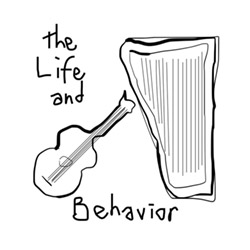







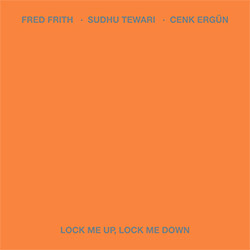
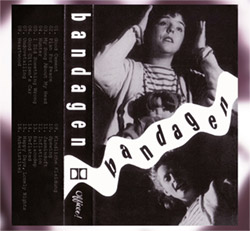
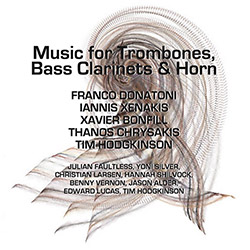
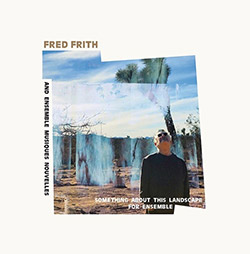
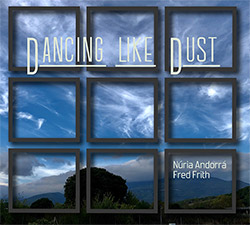

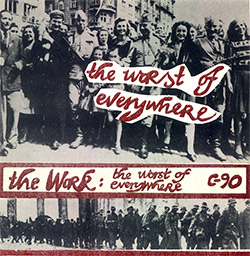
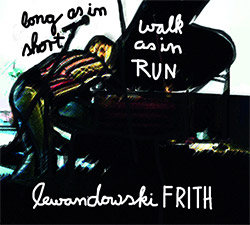
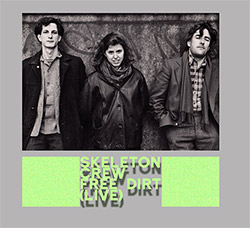
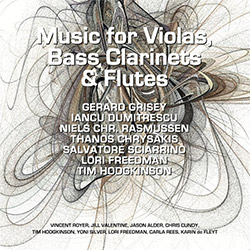
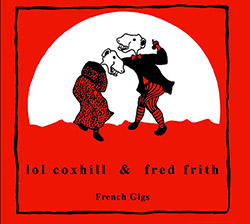
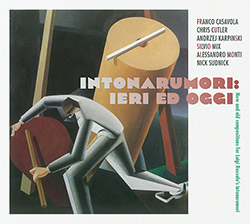


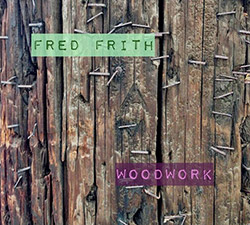

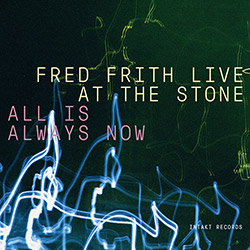











![Deupree, Jerome / Sylvie Courvoisier / Lester St. Louis / Joe Morris: Canyon [2 CDs]](https://www.teuthida.com/productImages/misc4/36404.jpg)


![Eternities: Rides Again [CASSETTE]](https://www.teuthida.com/productImages/misc4/36247.jpg)

![Lopez, Francisco: Untitled (2021-2022) [2 CDs]](https://www.teuthida.com/productImages/misc4/36438.jpg)




![Eventless Plot | Haarvol: The Subliminal Paths [CASSETTE + DOWNLOAD]](https://www.teuthida.com/productImages/misc4/36232.jpg)












![Eventless Plot | Francesco Covarino: Methexis [CASSETTE + DOWNLOAD]](https://www.teuthida.com/productImages/misc4/36231.jpg)



![Das B (Mazen Kerbaj / Mike Majkowski / Magda Mayas / Tony Buck): Love [VINYL]](https://www.teuthida.com/productImages/misc4/36329.jpg)



![Hemphill Stringtet, The: Plays the Music of Julius Hemphill [VINYL]](https://www.teuthida.com/productImages/misc4/36409.jpg)



![Halvorson, Mary Septet: Illusionary Sea [2 LPS]](https://www.teuthida.com/productImages/misc4/17952.jpg)






![Money : Money 2 [2 CDs]](https://www.teuthida.com/productImages/misc4/35894.jpg)




![Klinga, Erik: Elusive Shimmer [VINYL]](https://www.teuthida.com/productImages/misc4/36258.jpg)
![CHANGES TO blind (Phil Zampino): Volume 9 - I Wave on a Fine Vile Mist [CD + DOWNLOAD]](https://www.teuthida.com/productImages/misc4/36061.jpg)

![Wallmart / Rubbish: Asset Protection [split CD]](https://www.teuthida.com/productImages/misc4/35900.jpg)


![+Dog+: The Family Music Book Vol. 5 [2 CDs]](https://www.teuthida.com/productImages/misc4/35897.jpg)
![Kuvveti, Deli : Kuslar Soyledi [CASSETTE w/ DOWNLOAD]](https://www.teuthida.com/productImages/misc4/36107.jpg)

![Nakayama, Tetsuya: Edo Wan [CASSETTE w/ DOWNLOAD]](https://www.teuthida.com/productImages/misc4/36105.jpg)




![Yiyuan, Liang / Li Daiguo: Sonic Talismans [VINYL]](https://www.teuthida.com/productImages/misc4/35957.jpg)
![Brown, Dan / Dan Reynolds: Live At The Grange Hall [unauthorized][CASSETTE]](https://www.teuthida.com/productImages/misc4/36245.jpg)








![Palestine, Charlemagne / Seppe Gebruers: Beyondddddd The Notessssss [VINYL]](https://www.teuthida.com/productImages/misc4/36206.jpg)
![Palestine, Charlemagne / Seppe Gebruers: Beyondddddd The Notessssss [NEON GREEN VINYL]](https://www.teuthida.com/productImages/misc4/36207.jpg)

![Laubrock, Ingrid: Purposing The Air [2 CDs]](https://www.teuthida.com/productImages/misc4/35639.jpg)

![Yoko, Ono / The Great Learning Orchestra: Selected Recordings From Grapefruit [2 CDs]](https://www.teuthida.com/productImages/misc4/35841.jpg)









![Zorn, John / JACK Quartet: The Complete String Quartets [2 CDs]](https://www.teuthida.com/productImages/misc4/35609.jpg)

![Lonsdale, Eden: Dawnings [2 CDs]](https://www.teuthida.com/productImages/misc4/35480.jpg)



![Sorry For Laughing (G. Whitlow / M. Bates / Dave-Id / E. Ka-Spel): Rain Flowers [2 CDS]](https://www.teuthida.com/productImages/misc4/35985.jpg)

![Rolando, Tommaso / Andy Moor : Biscotti [CASSETTE w/ DOWNLOADS]](https://www.teuthida.com/productImages/misc4/36106.jpg)


![Electric Bird Noise / Derek Roddy: 8-10-22 [CD EP]](https://www.teuthida.com/productImages/misc4/35970.jpg)








![Elephant9 : Mythical River [VINYL]](https://www.teuthida.com/productImages/misc4/34624.jpg)


![Elephant9 with Terje Rypdal: Catching Fire [VINYL 2 LPs]](https://www.teuthida.com/productImages/misc4/35355.jpg)
![Deerlady (Obomsawin, Mali / Magdalena Abrego): Greatest Hits [VINYL]](https://www.teuthida.com/productImages/misc4/34876.jpg)







![Staiano, Moe: Away Towards the Light [VINYL + DOWNLOAD]](https://www.teuthida.com/productImages/misc4/35037.jpg)
![Coley, Byron: Dating Tips for Touring Bands [VINYL]](https://www.teuthida.com/productImages/misc4/17906.jpg)

![Lost Kisses: My Life is Sad & Funny [DVD]](https://www.teuthida.com/productImages/misc4/lostKissesDVD.jpg)